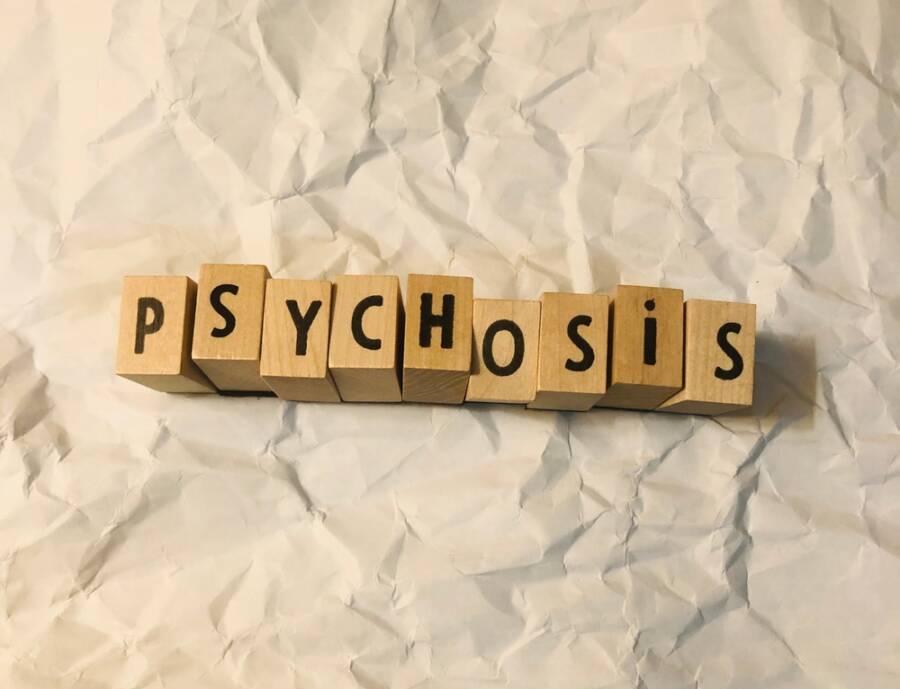If you have a difficult time recognizing the difference between what’s real and what isn’t, it may be an early psychotic sign, experts say!
Psychosis is when a person can’t distinguish reality from their imagination. This means your brain is processing information in a way that you perceive reality differently from other individuals around you.
This includes believing, hearing, seeing, touching, smelling, or tasting things that simply aren’t there. In most cases, psychosis is experienced as what experts call an “episode.” In this time, a person will undergo acute symptoms like hallucinations and delusions.
The sad fact is that about 3 in every 100 individuals will experience at least one episode of psychosis throughout their lifetime. It isn’t a condition on its own, though. It can be a symptom of a mental health disorder or a result of certain events, like an illness or injuries.
In the majority of cases, an episode of psychosis requires immediate medical intervention. So the best thing to do is arm yourself with information about 10 early psychotic signs to watch for in case it happens to you or a loved one.

But first, who might have psychosis?
Anyone can experience this disorder. Psychosis can even occur due to a medical condition, like Alzheimer’s, brain injury, or stroke. It can ensue as a part of a mental disorder like bipolar or schizophrenia, or it can be a once-in-a-lifetime break from reality.
Some things can raise your risk of having psychosis or make your psychosis more destructive. They include:
-Genetic factors
-Grief or divorce
-Extreme stress
-Being too tired
-Homelessness
-Drug or alcohol abuse
Psychosis usually happens for the first time when you’re an adolescent or young adult. But that doesn’t mean it can’t happen at an older age. Suppose a person has their first psychotic break after 40 years old.
In that case, it’s called late-onset psychosis, and it may come very late in life if it’s a part of Alzheimer’s disease, dementia, Parkinson’s disease, or some other condition that tends to affect older people.
Even though psychosis has mainly been studied in younger people, researchers deduced that late-onset psychosis isn’t at all rare. Now, let’s look at those early psychotic signs we mentioned.
Early psychotic sign: Lack of interest in activities, other people, or events
Psychosis may make you hesitant to socialize with other individuals. You might feel suspicious toward places and people or just have a general sense of apathy towards life.
Early psychotic sign: Incoherent speech
Incoherent speech can manifest in a few different ways, and you’re not usually aware of it. It could be that you hop from one topic to another without a clear link between the two, or you might repeat words rather than forming complete sentences.
For instance, you could go back and forth, saying the same three words over and over again. You may also use words you’ve suddenly made up or forget what you were talking about.
Disorganized speech makes it challenging for others to comprehend what you’re saying, and it makes it really difficult for you to express yourself to others clearly.
Early psychotic sign: Decreased gestures
Other than a total lack of emotional display, you may react and move less. For instance, you may stop using facial expressions or hand gestures to support your words or how you’re feeling. You may even end up sitting down for hours just looking at a wall.
Early psychotic sign: Delusions
Having delusions is one of the main features of psychosis. It causes you to maintain firm beliefs, even when evidence proves those beliefs are entirely wrong. When you experience a delusion, what you believe is indisputable.
No one will be able to change your mentality, and you might ferociously defend your new way of thinking. These fantasies can be about anything.
For instance, you might believe someone is trying to harm or spy on you, or you could be convinced that a huge Hollywood superstar is in love with you.
Early psychotic sign: Reduced motivation
You might find it challenging to begin simple tasks like brushing your teeth and washing your face or bigger ones like going to the grocery store.

Early psychotic sign: Disorganized behavior
It may be considered disorganized behavior when you constantly behave in a way that doesn’t align with your age or activity. For instance cleaning the bathroom while peeling apples could be regarded as disorganized behavior.
Chaotic behavior can range from bizarre to potentially harmful, to yourself or others. An individual exhibiting disorganized behavior could go from talking to themselves to running nude in the streets to moving all their furniture into the street without any obvious reason.
Early psychotic sign: Lack of emotional display
While experiencing an episode of psychosis, you might appear inexpressive and emotionless, even when the situation would warrant otherwise.
Early psychotic sign: Hallucinations
Along with having delusions, hallucinations are a main characteristic of psychosis. While delusions involve your thinking process, hallucinations involve your physical senses.
When you have a hallucination, you may see, touch, smell, taste, or hear things that aren’t there or that others in the same situation can’t sense.
For instance, you could be in your kitchen with your spouse and suddenly see spiders crawling all over the counter, while your partner doesn’t see anything of the sort. Or, you could taste honey or smell roses out of the blue without eating anything or changing environments.
Occasionally, during an episode of psychosis, an individual can have hallucinations that are related to their delusions. For instance, a person who believes they’re being followed could always see a person or creature coming their way when nobody is there.
Early psychotic sign: Withdrawn mood
Psychosis could put you in a headspace where you’re wary of social events or other people. You might find you’re more inclined to stay home than do things you usually enjoy.
Early psychotic sign: Personality shifts
While psychosis impacts everyone differently, personality shifts are a typical symptom. This means you might start acting in a way that’s normally out of character for you.
For instance, you may change from being extremely outgoing to being introverted, or you might be talkative and loud when, in the past, you were more of the silent type.
Other symptoms of early psychotic signs to look for
Psychosis may also show up as other manifestations as well. This can include:
Feelings of depression or anxiety
Difficulty sleeping
Substance abuse
thoughts of suicide
If you’re considering suicide or self-harm, you should know that you are not alone. Help is always available. Try to seek a professional to speak to. Or you can call a crisis hotline, such as the 988 Suicide & Crisis Lifeline.

Screening for psychosis
Mental health screenings can detect symptoms early or help you recognize later signs of a psychotic break. Seek a medical professional to help you with this. Another way you can screen yourself for psychosis is to take an online test.
All you have to do is answer a few quick questions by clicking the answer that fits your behaviors and beliefs. After the test, you’ll get a visual display that shows how closely your state matches psychosis.
We hope you found this article helpful. Please feel free to share your own thoughts with us in the comment section below. And if you liked this post, we recommend you also read: Borderline Personality Disorder: 8 Most Scary Misunderstandings










Leave a Reply